Providing proper nutrition for an aging feline companion is a matter of finding out the vigor of your cat. It can be hard to know without a vet checkup. Always keep an eye on your older cat's desire for food, food intake, eating behavior, weight, and body condition. This info will be valuable when you and your veterinarian find out your cat's specific nutritional requirements. Unless your cat has problems digesting regular cat food, is becoming overweight or is on prescription food, complete formulation cat food accompanied by clear water is acceptable.
Because cats are social animals, your senior cat may also be thankful for a cozy nesting place near the center of your family activity. It is suggested to progress older cats onto a specially formulated senior cat food. Store bought cat foods made especially for senior cats provide superior-quality protein and lower levels of phosphorous to diminish stress on the kidneys. The senior citizen cat formulas also add Vitamin E to strengthen the older cat's authentic defenses.
Cats Age Like Humans Do
Cats go through several physical and behavioral changes as they grow older. As your cat's metabolism slows down, the cat's senses begin to diminish. Senior cats have more problems with taste, sight, smell, and hearing. Sadly, these physical problems are a fact of life, and the cat owner must alter the way they feed their cat. Generally, older cats between the ages of 8 and 12 tend to grow fatter and following age 12 tend to become skinnier and metabolically old.
Keeping A Cat Healthy Through Proper Nutrition
There are numerous diseases and conditions that felines develop as they age. There are special diets formulated for cats that have developed heart disease. Cat diets for heart disease by and large have reduced levels of sodium and more of the amino acid taurine. Preservatives have been blamed for a number of problems in cats from food allergies to cancer. This point is still being researched and debated.
Preparing The Cat Food
If you are feeding canned food, warming up an opened can may take up to two hours from being taken out of the fridge. Alternatively, you might consider microwaving canned foods for a short time, but be careful of hot spots. If you a mental picture to go by, just think of Goldilocks. She wanted her porridge just right, not too warm, not too cold. Cats are the same way.
Other Things to Ponder in An Aging Cat
You should give your cat fresh water each time you feed it. Older cats tend to get dehydrated easier. Keeping the geriatric cat properly hydrated is critical. Older cats are often poor drinkers even when water is available, so supplying clean, fresh water makes it better. I recommend setting a number of bowls of fresh water in separate areas of the house.
Taking Care of an Older Cat Boils Down to This
Visiting a veterinarian on a regular basis for geriatric lab tests to establish a cat's standard weight and diet is vitally important. Veterinarians have yet to develop a "one size fits all" elderly cat diet. The task is merely impossible given the enormous diversity of senior cats and their varying health issues. Listening and following the suggestions of your vet is key to your cat living a longer, healthier life.

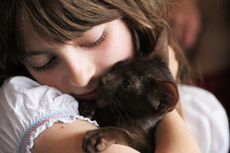 Cats and Children - Keeping Both Safe
Cats and Children - Keeping Both Safe
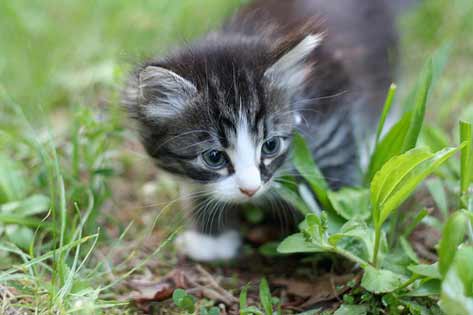 A Cat Lover's Guide: 6 Tips for Going 'Green'
A Cat Lover's Guide: 6 Tips for Going 'Green'
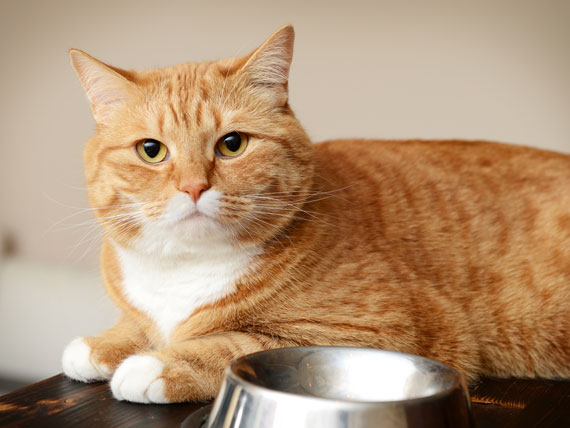 Why Grain Free Cat Food May Not Always Be the Best Choice
Why Grain Free Cat Food May Not Always Be the Best Choice
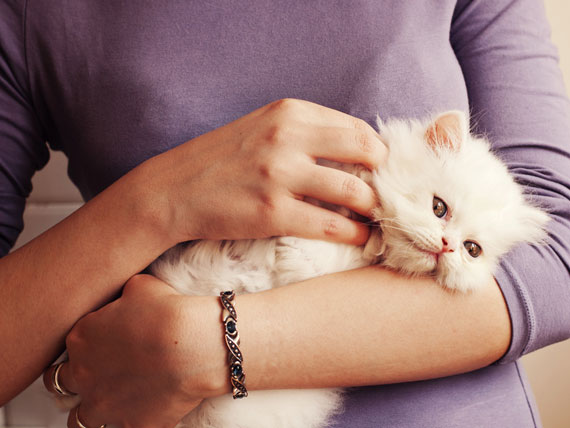 5 Steps to Success as a New Pet Parent
5 Steps to Success as a New Pet Parent
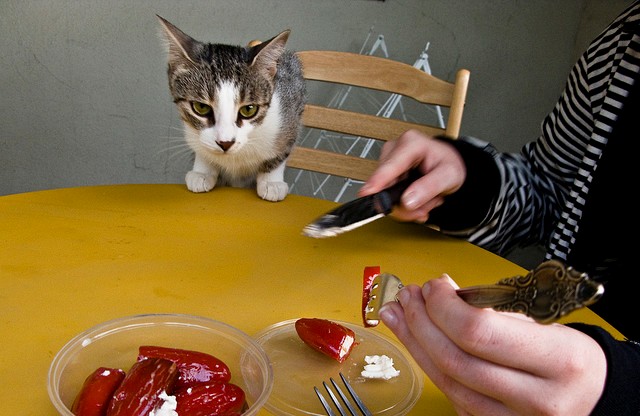 Choosing the Best Feeding Method for Your Cat
Choosing the Best Feeding Method for Your Cat
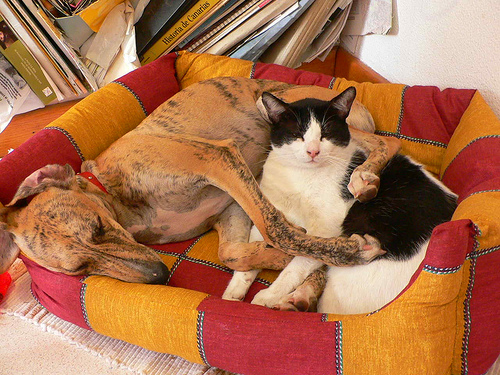 Cats Are Different: How a Cat's Nutritional Needs are Different from a Dog's
Cats Are Different: How a Cat's Nutritional Needs are Different from a Dog's
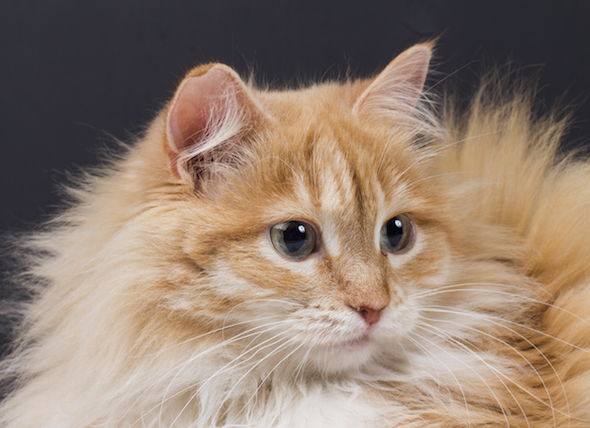 Facts About Cat Dander and Allergies
By Vanessa Voltolina
Do you get
Facts About Cat Dander and Allergies
By Vanessa Voltolina
Do you get
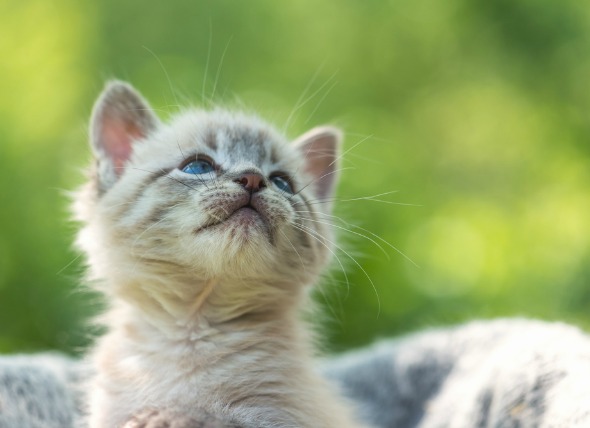 10 Tips for a Happy and Healthy Kitten
Getting a new kitten is one of the best things in the wo
10 Tips for a Happy and Healthy Kitten
Getting a new kitten is one of the best things in the wo
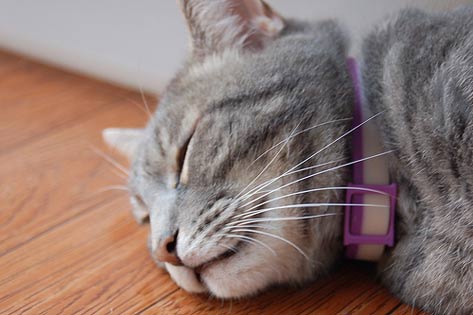 10 Ways to Stop Fleas from Biting Your Cat
By Jennifer Kvamme, DVM
There are l
10 Ways to Stop Fleas from Biting Your Cat
By Jennifer Kvamme, DVM
There are l
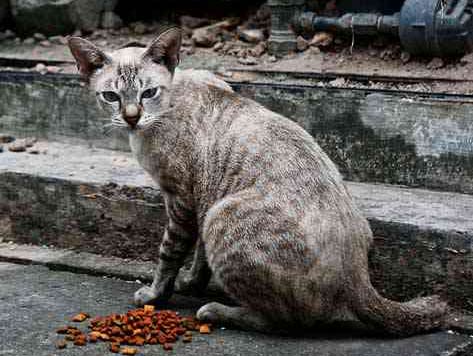 The Misunderstood Feral Cat
By Christine Michaels
Chances are that you
The Misunderstood Feral Cat
By Christine Michaels
Chances are that you
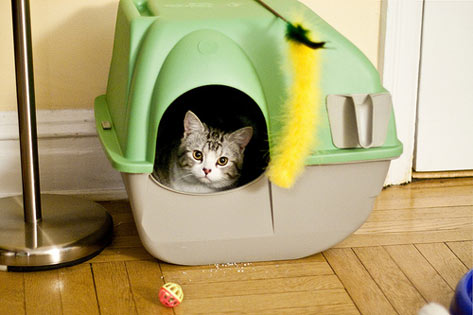 Natural Cat Litter: What's the Difference and Should You Switch?
If you are like most consumers, th
Natural Cat Litter: What's the Difference and Should You Switch?
If you are like most consumers, th